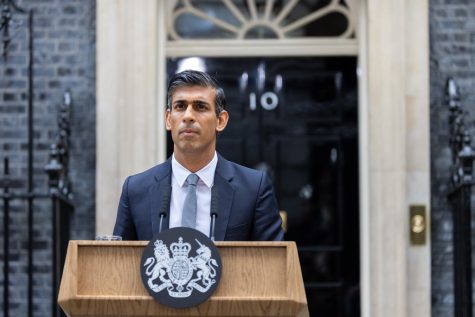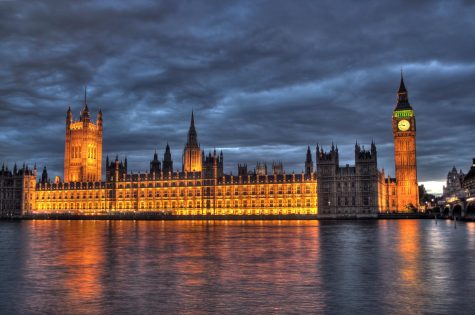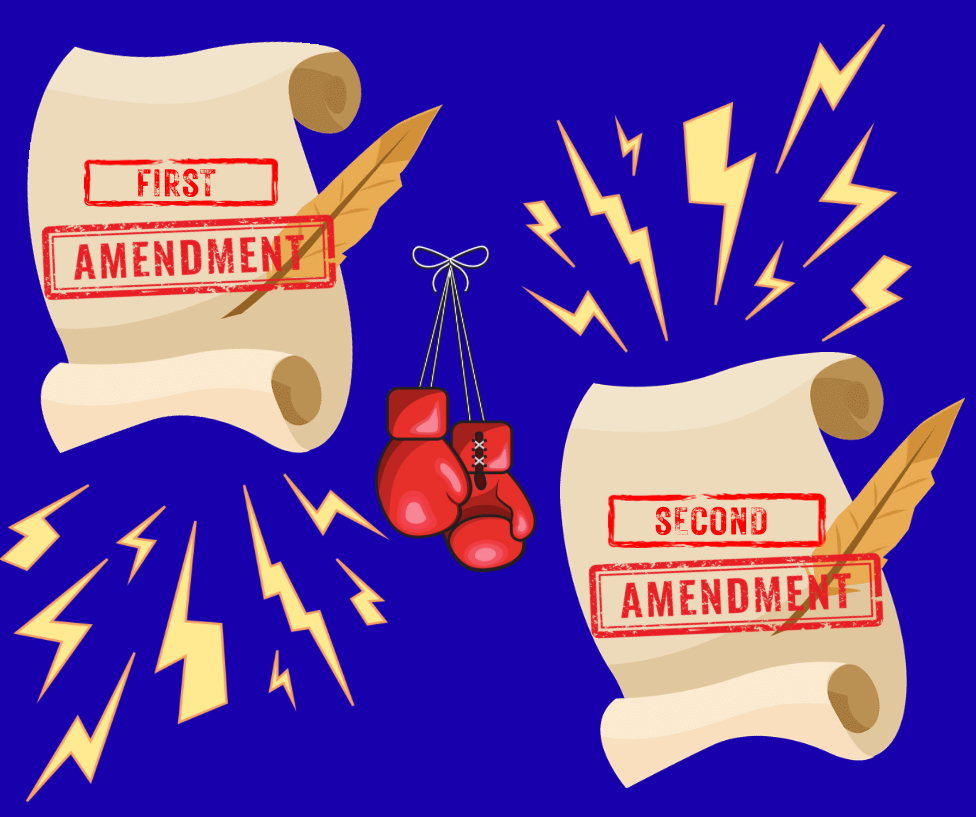170 days with Rishi Sunak: Has he guided the U.K. back towards stability?
Almost 170 days ago, Rishi Sunak took office as the United Kingdom’s new prime minister. His arrival granted the U.K. its first non-white PM, as well as one of Hindu descent. Cultural significance aside, Sunak’s reign was predicted by many to be brief. Better yet, to quote Thomas Hobbes, “nasty, brutish, and short.”
Although this phrase may be an exaggeration, hopes certainly were not high for Sunak.
Upon taking office, Sunak was handed the difficult task of navigating the U.K. out of governmental turmoil. His predecessor, the disastrous Liz Truss, had only lasted 49 days. During her brief yet chaotic time in office, Truss obtained some of the lowest approval ratings for a PM in decades, and her economic policies left the U.K.’s economy in ruin. The prime minister before her, the notorious Boris Johnson, had been forced to resign from his post following a series of scandals.

Sunak was labeled as both “inexperienced” and “out of touch” due to his immense wealth, a large portion of which he had obtained through his marriage to the daughter of an Indian billionaire. Sunak’s fortune is even believed to be greater than that of the King himself.
These statistics, as well as the fact that Sunak did not have extensive government experience prior to his appointment, evoked much controversy, as well as raised questions over whether or not Sunak was the best fit to guide the U.K. back into stability. Besides, it can even be argued that Sunak’s appointment as PM was rather strange.
Following the departure of Boris Johnson, Sunak and Truss faced off to replace him. In a vote between members of parliament, Truss beat Sunak by a landslide. Then, following the departure of Truss, Sunak appeared to be nothing more than a “consolation prize” for the British government in its scramble to find a replacement for Truss, hence his appointment.
It’s been almost half a year since Sunak became PM, and now it’s time to reflect on his successes, failures and effects his leadership has had not just on the U.K., but on the world.
The main promises Sunak made to the British people were to stabilize the economy, cut illegal immigration as well as tighten asylum policies and, above all, restore the integrity and trust in the government that was lost in the wake of both Truss and Johnson’s time in office.
So has Sunak upheld those pledges and proven a successful leader? It’s complicated.
Regarding the economy, an issue which obviously was Sunak’s top priority, Sunak specifically promised to cut down on inflation as well as decrease debt. When Sunak took office, inflation was at a four-decade high of 11.1%.

Once Sunak became PM, these numbers slowly decreased in the months to follow, so progress could be seen. However, in February, inflation rates jumped to a surprising 10.4%. Recently, food inflation has also been a large issue in the U.K., with prices having risen an alarming 18%, up from 16.7% in January.
Looking at the U.K. economy as a whole, not much growth has been made. Sunak has barely been able to fix the damage caused by his predecessors, and the current state of the U.K. economy is not looking favorable toward Sunak’s cause.
Sunak also aimed to cut down on illegal immigration rates. When he first moved into 10 Downing Street last October, Rishi Sunak was faced with a migrant crisis. Recently, the U.K. has witnessed a spike in migrations, many of which were illegal, across the English Channel. The route most of these migrants would take was to first stop in Northern France before embarking across the English Channel. In 2022 alone, 45,756 migrant crossings were reported. A stark majority of migrants making the perilous journey to Britain sought to escape famine, poverty, and political repression.
The sudden increase of migration activity across the English Channel was of concern for Sunak, and he was urged to take action the moment he took office. To his credit, he did, even though some of his policies have proven unpopular.
Last November, Sunak made an agreement with the French government, one that includes the English government paying the French up to $75 million annually to reduce illegal immigration across the English channel.
In early March, Sunak also proposed new legislation to further crack down on unlawful immigration: the Illegal Migration Bill. One of the most notable rules outlined in the bill includes the right to detain illegal immigrants and send them to Rwanda or some other deemed “safe” third-world country.

Unfortunately for Sunak, the bill has been met with much backlash, with critics calling it “racist” and some even declaring the bill to be illegal.
Although there are certainly still hurdles to overcome, it appears that illegal migration across the channel has decreased since Sunak took office.
All in all, after just over 150 days in office, Rishi Sunak’s time in office has appeared unfavorable. He has panned up to be one of the most unpopular U.K. prime ministers not just in recent history, but perhaps even of all time. As of last month, his approval rate was an alarming 28%.
Besides being labeled as “inexperienced,” Sunak has also been criticized as being a weak leader who has been unable to restore all-around stability in the U.K. Although it can be argued that he has slightly, though barely, improved the economy as well as dealt with illegal immigration, as of now, Sunak has failed to win the support of the people. If he wishes to stay in office, Sunak most definitely needs to step it up.
In just a year, members of parliament will decide if Sunak is still suitable as PM. The real question is, however, has he already lost?
Your donation will support the student journalists of Delaware Valley Regional High School. Your contribution will allow us to attend conventions, purchase equipment and cover our annual website hosting costs.

Ellen Jordan is currently a freshman at Del Val. This is her first year writing for The Delphi. Ellen is involved with the high school soccer team and...












































































